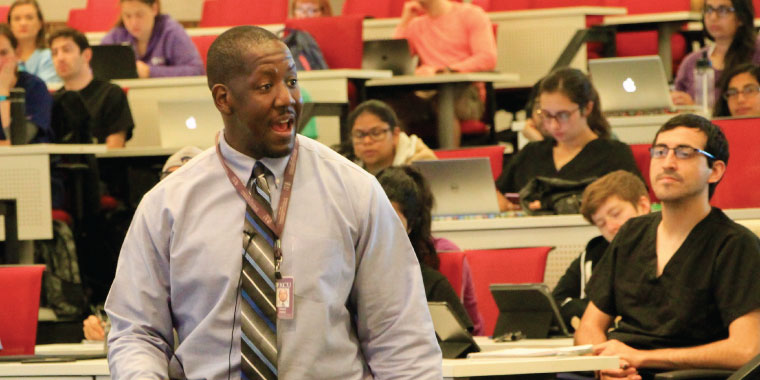Robert Walker, PhD, is an associate professor of Physiology at KCU and a mentor to students of all backgrounds and ages.
Here are Dr. Walker’s top five tips for motiving young people:
1) What’s your why?
It’s a pretty basic question, but one that is important to ask and answer. Dr. Walker wants young people to understand their goals by focusing on what motivates them. “I want them to be passionate about their purpose and find out what’s guiding them to do what they want to do,” he said.
2) Are you really willing to pay the price?
Paying the price, Dr. Walker believes, has nothing to do with dollars and cents. It’s those intangible costs like pulling an all-nighter before an exam or staying in weekends to study instead of going out with friends. That delayed gratification is when a student puts in the work today in order to enjoy life later. “It has everything to do with the work ethic and sacrifices that you have to make,” he said.
3) Scholarships, scholarships, scholarships
Dr. Walker’s advice is to not set the bar to get into college. Set it to get a scholarship.
“There’s a lot of money out there. You just have to take the time to look for it, be willing to go after it, and put yourself in a position to get it,” Walker advises. He recommends students should apply for every scholarship they can find. Every little bit of money helps relieve the financial burden.
4) Remember one thing, you are going to fail! Use failure to self-assess
Dr. Walker reminds young people that sooner or later, they will fail at something. The key to success is not to wallow in the failure. Instead, self-assess, rethink, re-strategize and return to the game to do greater things. When life’s struggles get you down, remember the challenges in your past that you overcame. “Remind yourself that you’re still here, still breathing and moving forward,” Dr. Walker added.
5) Use mentors
Dr. Walker has used mentors throughout his academic career, such as professional colleagues, past professors and family members. “You shouldn’t go through your academic career without a blue print. Mentors are the architects who can draw up a blue print for you to help guide you along the way,” Dr. Walker said.




(0) Comments